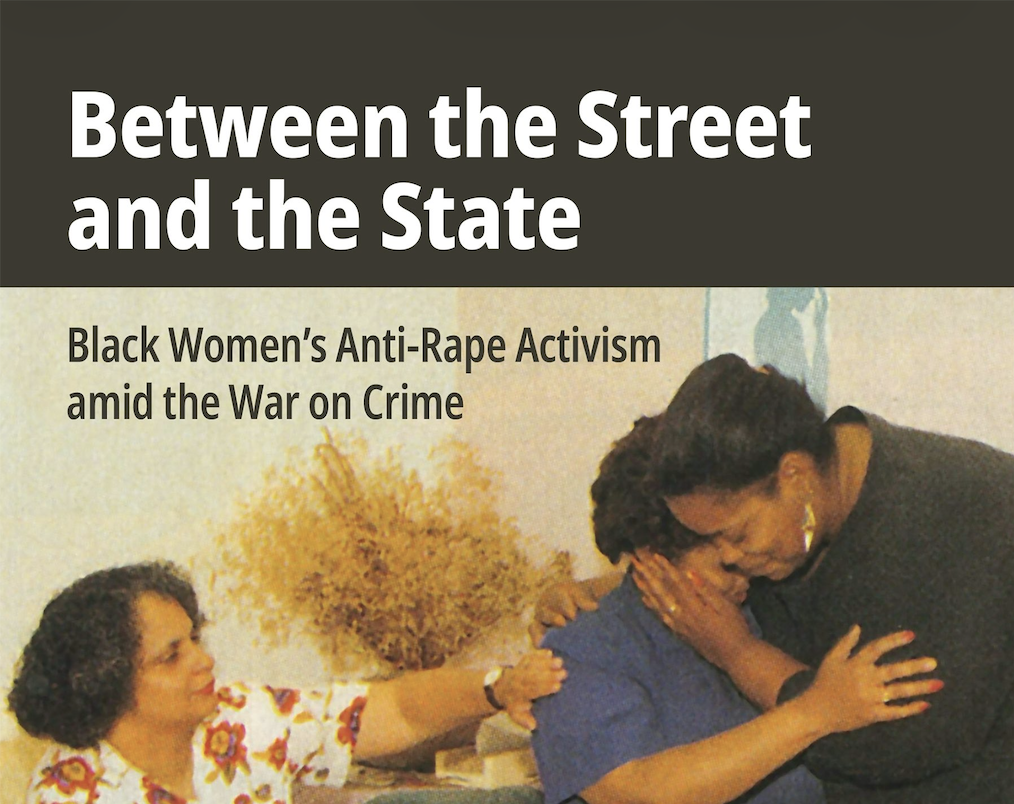author's pitch: Black Women’s Anti-Rape Activism during the War on Crime
"...community-based care was a necessary alternative to law enforcement’s coercive attempts to control rape"

For our author's pitch today, we have a post from Caitlin Reed Wiesner, an assistant professor of History at Mercy University and specialist of the history of women, gender, and sexuality in the 20th century United States. Caitlin's new book Between the Street and the State: Black Women’s Anti-Rape Activism Amid the War on Crime is out now with the University of Pennsylvania Press as part of the Politics & Culture in Modern America Series.
In the early 1980s, Phyllis Pennese and Beryl Fitzpatrick were the latest contributors to the storied Black women’s tradition of publicly organizing against sexual violence. Both worked as counselors for Rape Victim Advocates (RVA) serving sexually assaulted women in Chicago, the majority of whom were Black and dispossessed under the decade’s slashing of social welfare spending. Both recalled separate cases with RVA that illustrated how the city’s response to sexual assault, which was primarily managed by a handful of feminist anti-rape groups, failed Black women. Pennese realized that law enforcement could never be trusted as an arbiter of Black women’s safety when she escorted a client whose clothes were still smeared with her assailant’s blood to the police station only for the officers to arrest her on an outstanding warrant for prostitution. Fitzpatrick learned from a call to the Henry Horner Homes, where she observed concerned neighbors stepping in to bathe and feed and assaulted single mother and her children, that what survivors needed first and foremost was community-based care for their minds, bodies, and souls. Taken together, Pennese and Fitzpatrick’s realizations— that community-based care was a necessary alternative to law enforcement’s coercive attempts to control rape— formed the core praxis of the Chicago Sexual Assault Services Network (CSASN), which they organized with other Black women social service professionals in 1983. As Between the Street and the State: Black Women’s Anti-Rape Activism Amid the War on Crime shows, their commitment to a community-based praxis of care was shared by Black women anti-violence activists across the country in the last quarter of the 20th century.
Scholars like Marie Gottschalk, Beth Richie, and Aya Gruber have extensively documented the carceral cooptation of the feminist movement against sexual violence since the 1970s and how rape control that centers law enforcement officials compounds the violences endured by women of color. More recently, historians like Emily Thuma, Catherine O. Jacquet and Christina Greene have turned to the archive and unearthed examples of Black and white feminists resisting this cooptation and the narrowing of advocacy to facilitating policing, prosecution, and imprisonment. Between the Street and the State offers a new lens for this incomplete and contested co-optation. Interviews with lesser-known Black women anti-violence activists show that Black women’s tradition of community-based care work, when imbued with a Black feminist condemnation of state and patriarchal violence, embraced Black women and girls while shielding them from an increasing hostile carceral state.
Carceral History is an always free newsletter published as a professional service by an urban historian with work/life balance issues who is supporting bail reform in Connecticut. interested in contributing to the newsletter? email carceralhistory@gmail.com.
